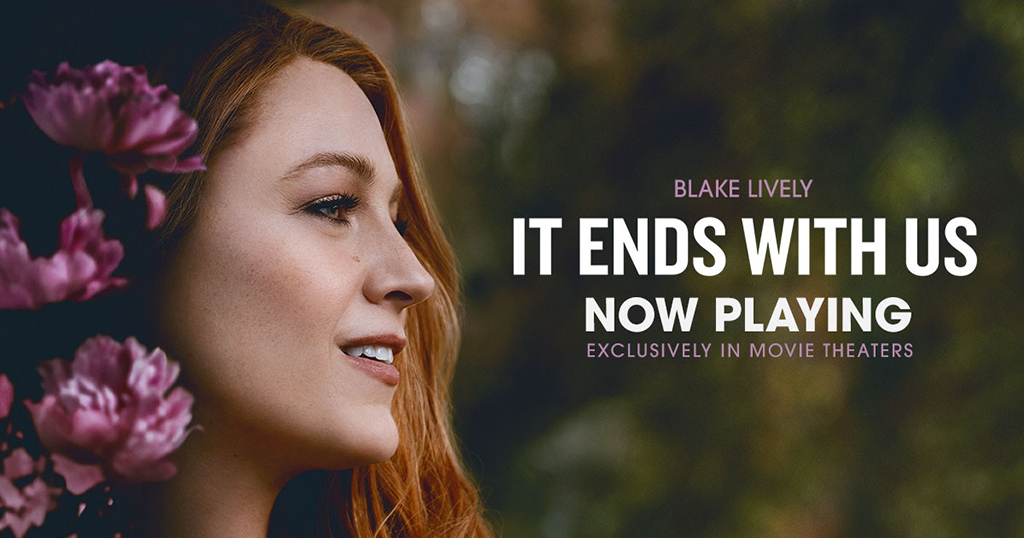By Bob Garver
I was on vacation two weekends ago, so I missed the chance to review this movie when it nearly took down “Deadpool & Wolverine” for the #1 spot at the box office. Two weeks later, the film has dropped to #3, but it still outperformed everything that opened this past weekend, not to mention racking up an impressive $120 million domestic total. It is time to officially take a look at this movie, and I’m grateful for the opportunity to do so.
Blake Lively stars as Lily Bloom, a woman who loves flowers. Fortunately the movie is only this annoyingly on-the-nose this one time. She meets handsome neurosurgeon Ryle Kincaid (Justin Baldoni, also the film’s director) on the roof of her apartment building while he’s in a furious mood over a dead child. She’s put off by his violent anger, but supposes that anyone can lash out over something so horrific. He apologizes, and the two get to talking. He discloses that he’s not one for relationships. She discloses that she had a relationship with a homeless guy named Atlas as a teenager (she is played by Isabela Ferrer and Atlas by Alex Neustaedter in flashbacks). The conversation isn’t exactly what you’d call a Meet Cute, but it does make Ryle want to see more of Lily.
The two start steadily building a relationship. Lily opens a flower shop with the help of Ryle’s sister Alyssa (Jenny Slate). They go to the finest restaurants, including one owned by the now-successful Atlas (Brandon Sklenar). Ryle still has some anger issues involving his late brother, and she has some trust issues involving her parents, but it’s nothing their love and support can’t overcome. Then a kitchen incident leads to him hitting her in the face. An enraged Atlas attacks Ryle when he sees Lily’s bruised face, which gives all three characters pause and forces them to consider the role of violence in their lives.
Going into this movie, I knew that the subject matter dealt with domestic violence. I briefly wondered if it was only going to go as far as the kitchen incident and then the feud between the men would escalate from there. Was this movie really going to build its entire conflict around a hot oven repelling Ryle’s arm into Lily’s face? Sadly, the escalation does lead to violence that is not an accident, and not just involving the men. Lily is abused in at least one scene that is bound to go down as one of the most disturbing of the year. I saw this movie the same day as “Alien: Romulus,” and the violence here was much harder to watch than Xenomorphs bursting out of people’s bodies.
With all due respect to the rest of the cast and crew, the movie is nothing without Lively’s performance. Everything about Lily in the last third of this movie is heartbreaking, from her literal pain to helplessness to anger to even understanding. With the sympathy she inspires with her anguish and eventually strength, I can understand why this property has the following it does.
“It Ends with Us” is maybe not a great movie all-around. The courtship scenes drag on too long, flashbacks are too frequent and awkwardly inserted, and certain elements probably worked better in the Colleen Hoover novel than they do onscreen (example: Lily jokingly calling herself an “unreliable narrator” and then the movie taking a second look at a scene it pretends we misread but is clearly completely different the second time). But what does work is too affecting to dismiss. It’s accurate to call this movie a tearjerker, but thanks to Lively, those tears are well-earned.
Grade: B-
“It Ends with Us” is rated PG-13 for domestic violence, sexual content and some strong language. Its running time is 130 minutes.
Contact Bob Garver at rrg251@nyu.edu.




